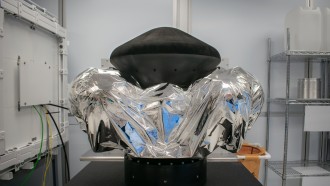OCZ Storage Solutions, a division of Toshiba Group Company, which is synonymous with solid-state drives (SSDs), has taken the wraps off its flash accelerator which will speed up SQL servers.
In 2013, OCZ Storage solution introduced the ZD-XL SQL accelerator card and a year later on July 14. Toshiba Group followed it up by releasing version 1.5, which offers support for Microsoft SQL Server 2014, 2012 and 2008 R2 versions.
"Our next generation SQL accelerator extends the SQL Server 2014 flash storage feature-set and uniquely exposes our PCIe-based on-host flash resources as local flash volumes, a flash cache for HDD volumes, or any combination of both, efficiently distributing random workloads in parallel between all of its available flash," says Daryl Lang, SVP of Product Management for OCZ Storage Solutions. "This unrivalled flash partitioning enables transient files (such as tempDB) to benefit from fast flash performance while hot data is cached to flash for immediate availability by SQL Server."
ZD-XL SQL Accelerator 1.5 has the ability to increase the speed of only database files that require the same. It cannot only work with several machines that run SQL Server workloads simultaneously, but also has the ability to connect databases that have flash across a wide network.
Moreover, the flash accelerator offers cutting-edge ECC, end-to-end and power loss data protection, as well as other solutions that help increase the lifespan of the drive and safeguard data.
As per OCZ, the ZD-XL (when compared to spinning hard disk drives [HDDs]) is capable of delivering nearly 22 times more transactions per minute. The flash cache for HDDs is in a storage-area network (SAN) and this is able to improve transactions nearly five times.
The ZD-XL SQL Accelerator 1.5 comes in a full length/half length (FL/HL) format and will be available in three Multi-Level Cell (MLC) configurations, which support the following storage capacities: 800GB ($2950), 1.6TB ($4800) and 3.2 TB ($8200). It comes with a five-year warranty.
CHECK OUT: How To Repair SQL Database Using Recovery Toolbox
* This is a contributed article and this content does not necessarily represent the views of techtimes.com








